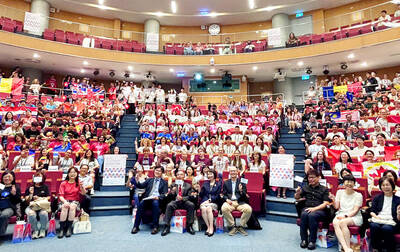Russia had a short answer for US President George W. Bush's top national security advisers who came to ask for detente in the simmering argument over a planned US missile shield at Russia's doorstep: "Nyet." Or maybe, "Not yet."
The US and Russia got no closer to settling their public differences over US plans that Russia sees as a potential threat and a turf battle for influence in states once under the Soviet thumb.
Russian Foreign Minister Sergey Lavrov said he would take a closer look at US proposals meant to allay Russian fears, but added that the best way to end the disagreement would be to scrap the plan for placing missile interceptors in Poland and a tracking radar system in the Czech Republic.
"We've leaned very far forward in this in an effort to provide reassurance," but the US plans to go ahead, Secretary of Defense Robert Gates said on Tuesday following two days of talks with Russian President Vladimir Putin and other officials.
During a brief greeting witnessed by reporters on Monday, Putin did not mention US plans for the missile shield, a marked contrast from his vehement opposition when he met in October with Gates and US Secretary of State Condoleezza Rice, who returned to explore whether US concessions had softened Putin's stance.
On Monday, Gates gave as an example the US suggestion that Russia be allowed to monitor the activities in Poland and the Czech Republic. He said the Russians initially thought this meant they would be limited to monitoring through their diplomatic presence in the Polish and Czech capitals. Gates said that was clarified to mean the Russians would be permitted a physical -- but likely not continuous -- presence at the missile defense sites, and that the Russians appeared to regard this more favorably.
At first the Polish and Czech governments objected to having Russian monitors on their soil. But Polish Prime Minister Donald Tusk said on Tuesday that his government would be open to discussing an arrangement.
The US proposed the visit to give a formal framework to numerous issues in which the US and Russia have common or overlapping interests. Gates and Rice carried a document that lays out areas of agreement reached under Putin and Bush.
Russia said yesterday that the US had failed to deliver the document.
"In spite of promises yesterday, written proposals from the American side have not yet been received by us," Foreign Ministry spokesman Mikhail Kamynin said.
Gates and Rice left Moscow yesterday.
Also See: Russia to restart air links with Georgia after 17-month halt

TAIWAN IS TAIWAN: US Representative Tom Tiffany said the amendment was not controversial, as ‘Taiwan is not — nor has it ever been — part of Communist China’ The US House of Representatives on Friday passed an amendment banning the US Department of Defense from creating, buying or displaying any map that shows Taiwan as part of the People’s Republic of China (PRC). The “Honest Maps” amendment was approved in a voice vote on Friday as part of the Department of Defense Appropriations Act for the 2026 fiscal year. The amendment prohibits using any funds from the act to create, buy or display maps that show Taiwan, Kinmen, Matsu, Penghu, Wuciou (烏坵), Green Island (綠島) or Orchid Island (Lanyu, 蘭嶼) as part of the PRC. The act includes US$831.5 billion in

The paramount chief of a volcanic island in Vanuatu yesterday said that he was “very impressed” by a UN court’s declaration that countries must tackle climate change. Vanuatu spearheaded the legal case at the International Court of Justice in The Hague, Netherlands, which on Wednesday ruled that countries have a duty to protect against the threat of a warming planet. “I’m very impressed,” George Bumseng, the top chief of the Pacific archipelago’s island of Ambrym, told reporters in the capital, Port Vila. “We have been waiting for this decision for a long time because we have been victims of this climate change for

Taiwan is hosting the International Linguistics Olympiad (IOL) for the first time, welcoming more than 400 young linguists from 43 nations to National Taiwan University (NTU). Deputy Minister of Education Chu Chun-chang (朱俊彰) said at the opening ceremony yesterday that language passes down knowledge and culture, and influences the way humankind thinks and understands the world. Taiwan is a multicultural and multilingual nation, with Mandarin Chinese, Taiwanese, Hakka, 16 indigenous languages and Taiwan Sign Language all used, Chu said. In addition, Taiwan promotes multilingual education, emphasizes the cultural significance of languages and supports the international mother language movement, he said. Taiwan has long participated

MASSIVE LOSS: If the next recall votes also fail, it would signal that the administration of President William Lai would continue to face strong resistance within the legislature The results of recall votes yesterday dealt a blow to the Democratic Progressive Party’s (DPP) efforts to overturn the opposition-controlled legislature, as all 24 Chinese Nationalist Party (KMT) lawmakers survived the recall bids. Backed by President William Lai’s (賴清德) DPP, civic groups led the recall drive, seeking to remove 31 out of 39 KMT lawmakers from the 113-seat legislature, in which the KMT and the Taiwan People’s Party (TPP) together hold a majority with 62 seats, while the DPP holds 51 seats. The scale of the recall elections was unprecedented, with another seven KMT lawmakers facing similar votes on Aug. 23. For a